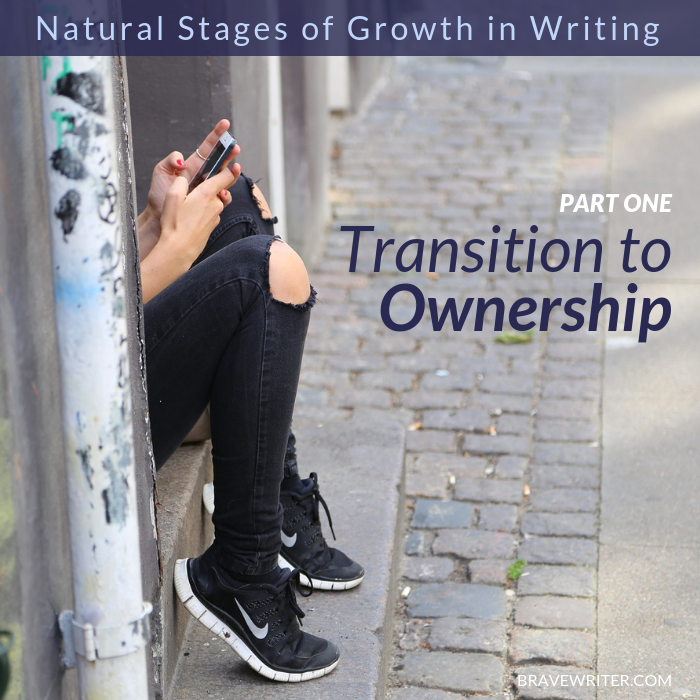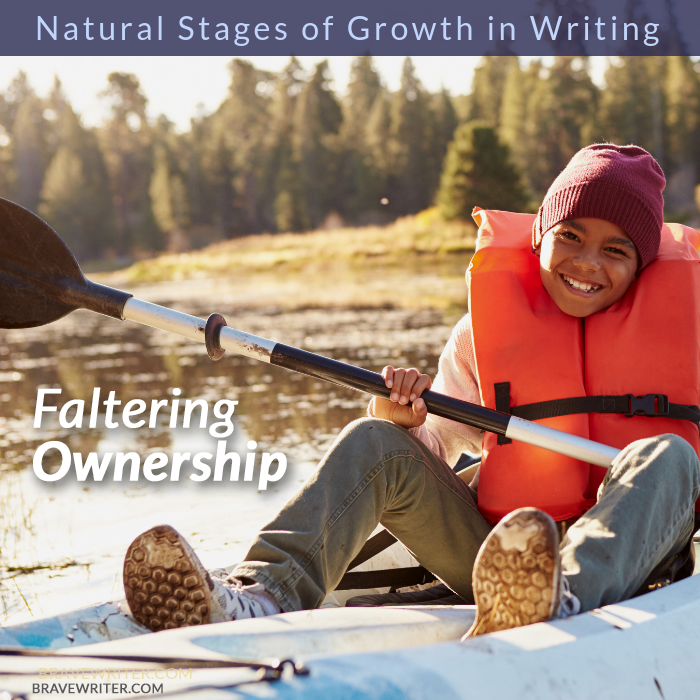2 zippy tips to get those rascals of yours on board
I promised that before the school year started, I’d give you a couple of pointers for how to get those kids of yours to buy into their homeschool experience. Here they are, in the nick of time!
1. Psst: They can’t read your mind. Let them in on your plans!
You know what I hate? I hate being super-duper excited about an idea I have that is sure to change the world, or at least tomorrow morning, only to have a kid—my kid!—roll her eyes at me and scowl.
I hate putting in endless hours reading, discussing, pondering, imagining, and preparing for this most-holy-and-awesome project only to meet sarcastic rejoinders, bored stares, and dawdling.
I hate being convinced by my posse of homeschool mom friends that the curricula I used last year blows and this new one is perfect, only to discover that I hate the first five paragraphs of explanation and now feel obligated to use it because of all the money I spent. I hate that my kids can tell I’m not excited and they make it worse by complaining…. OUTLOUD SO I CAN HEAR THEM.
Homeschooling is hard enough.
It’s intolerable when your kids DON’T WANT TO DO WHAT YOU WANT THEM TO DO.
To help your little rascals get into that same head space you’re in, you want to use a skill you’re famous for teaching your children: narration. Narrate aloud in a kind of Shakespearean soliloquy the process you are going through/went through that led you to this particular moment in time.
For instance, you might wake up one morning and move through the kitchen-family room talking aloud like this (while clearing shoes from the floor and empty dirty cups from horizontal surfaces):
You know, yesterday during nap time, I paged through our Incan chapter in the history text. Did you know they made these interesting patterns on clay pottery? I thought to myself, ‘I would love to paint pottery like that.’ Then I wondered how difficult it would be to get some clay to make the pots first. Easy! We have that Michael’s coupon.
Then I imagined what it must have been like for the archaeologists to have found those broken pots in the ground so many hundreds of years after they’d been made. You know?
So I got to thinking. What if I made a pot, painted it with cool Incan designs, smashed it with a hammer, and buried it in the backyard between layers of cardboard to show what century it came from? Then you guys could dig up the broken pots!
Or, even better, I wondered if you’d want to paint, smash, and bury the pots for me to dig up? Or we could do it for each other. Do you think you’d like to do something like that? Look at these pictures!
You model your process by narrating it to the kids. You invite them to move with you through the thoughts and ideas you generated so they have time to “catch up” to you and imagine it with you.
Sure, most kids would love to paint designs, hammer pots, and dig holes in the ground. But sometimes even your best ideas feel overwhelming to kids when they get dumped on their heads while they’re still wiping sleep from their eyes.
What do you do if the idea you have is
less immediately exciting?
When you want to move into a new set of workbooks, or you have decided to change how you teach math, or perhaps you have a child who will need to work harder than usual to learn to handwrite, you want to narrate your thinking process there too. But add brownies and some cuddle time.
(While on the couch, snuggled close together)
Sweetie, you know how we’re not enjoying ________ (math, writing, cursive, reading) right now? I have some friends who have shared some new ideas with me about how we might make it a little easier. It might take some effort to catch on and I know it will feel really weird at first to change what we’ve been doing, but how does this sound to you?
Here’s what it’s like. Here’s how it works. Here’s what you would be doing. How does that sound? (Listen.)
(Ask and mean it) Can we try it together for a week and then discuss how it feels? What time of day do you want to try it? Does it help if you have a plate of cookies by your side? Or iPod headphones in your ears? Or alone on your bed in your room, away from the chaos of the family?
Tell me how it really is for you and I will help you along the way. Here’s the philosophy behind this new way (state it in simple terms—more active, more concentration, more repetition, less tedium, more creativity, more predictability, slower, faster…). Then we’ll evaluate. Can you do it with me for a week (month, semester)?
This is how you narrate to your child what it is you might want to try, might want to do. You involve them, getting feedback. You’re still the parent. You can expect the child to cooperate or to try it, but you want to do so with a gentle, open mind. Allow for tweaks and feedback (even negative responses need to be heard).
If all else fails, you can try the new program yourself first. Sit at the table and start painting, or do copywork, or try the new math game. Talk about it as you do it. Let your kids watch you. Be upbeat and engaged. See who joins you. Laugh – that almost always pulls kids into what you are up to.
2. Psst: You can’t read their minds either! Ask them what they want.
On the flip side, your kids have been pondering, thinking, and imagining their lives too. Some of them spend time envisioning the next level they’ll beat on a video game. Others wish they could sew costumes or paint with watercolors. You might have a child who wants to be in a play or who wants to play an instrument. Maybe your daughter wants to become the next soccer star of her local team and your son hopes he can take a cake decorating class. A teen might want to spend hours a day watching the top 100 films listed by Criterion in order.
How will you know they have these dreams if you don’t ask? Where will those hours of the day come from if they’re already filled with your agenda or your wishes?
Even more, what if your kids have some thoughts about how to learn the hard subject area that they struggle with? It’s surprising the amount of insight some children have about their struggles if you know how to ask them the right kinds of questions. You might ask things like:
I know times tables feel hard to do. Does anything help? Do you prefer to hold things in your hand or draw on a chalk board? Does it help to talk to me as you work on them? What’s the hard part for you? Is it the book? Too busy and colorful? Too plain and tedious? Do the Cuisinaire rods hurt or help?
Don’t punch the questions at your child like a nail gun. Take them slowly, show curiosity. Sometimes a child will say one thing that unlocks the whole thing:
I don’t get the point of the rods.
Suddenly you can see that your child is going through the motions without true understanding! More modeling and support, conversation and suggestions can follow. So pay attention and use your maturity and compassion to help you hear where the frustration comes from.
Usually lectures about the value of a specific subject area for their eventual adulthood doesn’t work with kids. What works is breaking down each task to its smallest part and relating it to their immediate world.
If there is no immediate connection, perhaps the work should fall to you to discover one before requiring a child to work that hard on the subject. After all, these are children. They don’t have the same level of fortitude to “do what they should” as you do as an adult. So take time (since you are the grown-up) to find the connection, to uncover the meaning, and to share it with love and support before requiring follow through and effort.
When your child shares what I like to call a B-HAG (Big Hairy Audacious Goal), you want to support the dream. For instance, our middle son, Jacob, wanted to go to NASA’S space camp. We didn’t earn enough at the time to afford it. So Jacob’s dad suggested that Jacob start a cookie business in our neighborhood to raise the money. And Jake did—he raised over $1000 between the ages of 10-12 to pay his entire way (including airfare).
We bought the ingredients, we taught him how to knock on doors to get customers, we supported him when he spoke to managers at grocery stores to see if he could sell cookies out front, we helped him open a bank account. We didn’t shut him down or make science experiments more important. We made time for him to achieve his goal with support and creativity. This choice took time away from other studies or activities. But it’s what he wanted to do.
Even to this day, Jacob (20) loves astronomy despite the fact that he isn’t planning to work in the space industry. He has this marker in childhood, though, of having set his mind to a Big Hairy Audacious Goal and fulfilling it. That attitude has continued right into his adulthood.
If you take the time to narrate what you imagine in your family and you take the time to listen to your children narrate what they imagine would make them happy, you will discover lots of things you could be doing together right now that would expand the joy and power of your homeschool immediately.
Isn’t that what you want?
I’d love to hear how it goes and what you find out from your kids. We can discuss in comments below.
Registration for fall classes opens on Monday, August 6, at noon eastern.
Remember: fall is our busiest time so if you are wanting a class, be sure to sign up early!
The new season of the Arrow and Boomerang are happening right now too! Not too late to sign up.
Rooting for you,





















